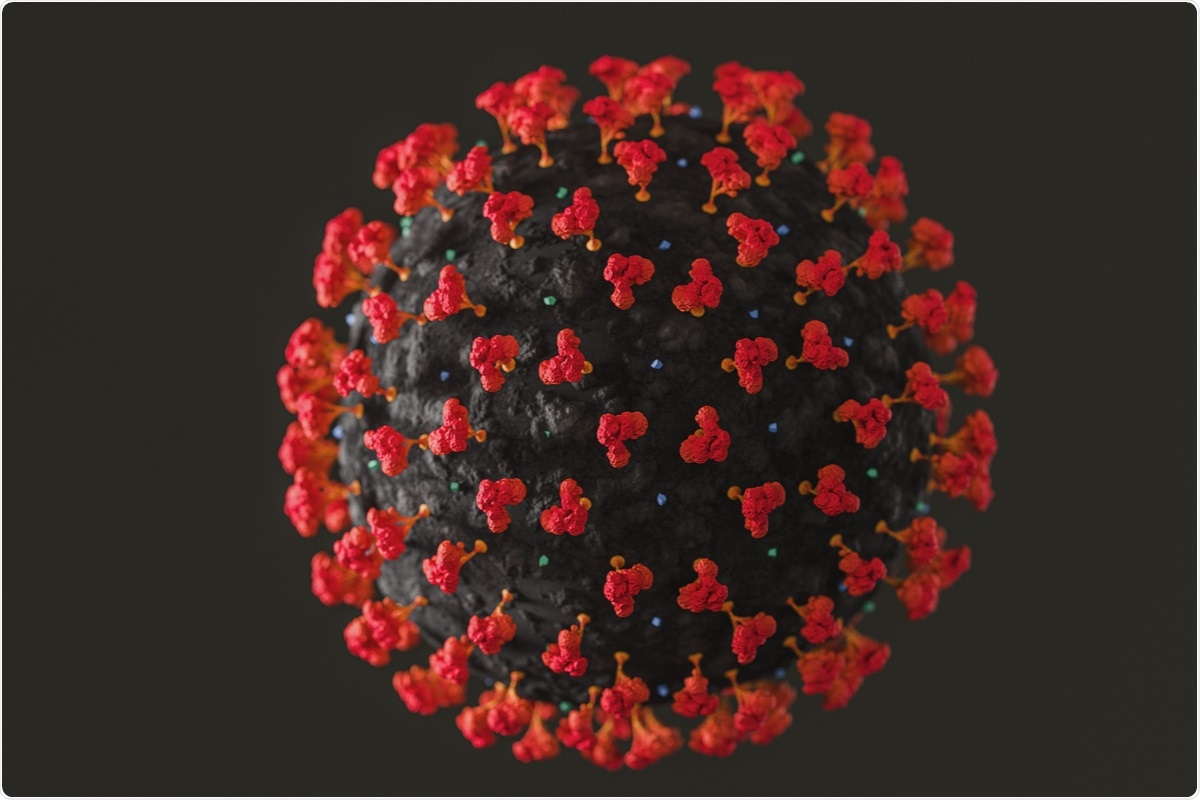Angiotensin II type 1 receptor-targeting autoantibodies may increase COVID-19 severity
A team of US-based scientists recently demonstrated that pro-thrombotic autoantibodies that target angiotensin II type 1 receptor (AT1R) may be associated with endothelial complications observed in coronavirus disease 2019 (COVID-19), a novel disease caused by severe acute respiratory syndrome coronavirus 2 (SARS-CoV-2). The study is currently available on the medRxiv* preprint server.

Background
Hypercoagulation and thrombosis are the major hallmarks of severe COVID-19. Studies investigating the mechanism of endothelial dysfunction in COVID-19 patients have suggested that coagulopathy may result from direct endovascular damage, abnormal platelet functioning, or infection-induced pro-thrombotic autoantibodies.
According to available literature, anti-endothelial antibodies that are directed against AT1R can potentially increase the risk of hypertension, preeclampsia, and renal transplant-related vascular rejection. Particularly, AT1R-targeting autoantibodies directed against the second extracellular loop of the receptor are associated with increased proinflammatory cytokine production, increased disease severity in preeclampsia (pregnancy-related high blood pressure), and aberrant coagulation and blood clot formation. In severe COVID-19, multi-organ endothelial inflammation may increase the development of anti-endothelial AT1R-targeting antibodies. Moreover, structural similarities between SARS-CoV-2 spike epitopes and the second extracellular loop of AT1R may result in the development of cross-reactive antibodies.
Given these observations, the scientists in the current study have investigated the role of AT1R-targeting autoantibodies in mediating hypercoagulation in COVID-19. Moreover, they have assessed whether SARS-CoV-2-negative individuals with AT1R-targeting autoantibodies exhibit cross-reactivity against the viral spike trimer.
Study design
Screening of AT1R-targeting autoantibodies was conducted using plasma samples derived from patients with mild or severe COVID-19. As experimental controls, plasma samples from seronegative individuals without a history of COVID-19-like illness were also assessed. Moreover, structural modeling experiments were performed to identify structurally similar regions between AT1R and SARS-CoV-2 spike protein.
Important observations
A comparable proportion of individuals with AT1R-targeting autoantibodies was identified among mild COVID-19 patients and healthy controls. However, a higher proportion of AT1R autoantibody-positive individuals was identified among severe COVID-19 patients as compared to that among healthy controls.
Although not statistically significant, higher levels of AT1R-targeting autoantibodies were observed in mild COVID-19 patients compared to that in healthy controls. In contrast, no such difference in antibody levels was observed between severe COVID-19 patients and healthy controls.
Among patients with severe COVID-19, comparatively higher levels of AT1R-targeting autoantibodies were observed in those with thrombotic events, including myocardial infarction, pulmonary embolism, and deep-vein thrombosis.
Based on the prediction made by structural homology assessments, there could be potential antibody cross-reactivity between the S2 subunit of the SARS-CoV-2 spike and AT1R.
To test the prediction, further experiments were conducted with samples obtained from healthy controls with or without AT1R-targeting autoantibodies. The findings revealed that AT1R autoantibody positivity status is not associated with reactivity to SARS-CoV-2 spike trimer. Moreover, a low level of cross-reactivity was observed between AT1R-targeting autoantibodies and the SARS-CoV-2 receptor binding domain and nucleocapsid protein.
Study significance
The study highlights a possible association between AT1R-targeting autoantibodies and COVID-19 severity. Specifically, the study suggests that AT1R autoantibody positivity status may increase the risk of endothelial complications in COVID-19 patients.
However, since the scientists could not determine whether these antibodies are pre-existing or developed in response to SARS-CoV-2 infection, they are unable to understand whether naive individuals with AT1R autoantibodies are more susceptible to develop severe COVID-19 if infected with SARS-CoV-2.
*Important notice
medRxiv publishes preliminary scientific reports that are not peer-reviewed and, therefore, should not be regarded as conclusive, guide clinical practice/health-related behavior, or treated as established information.
- Harrington WE. 2021. Angiotensin II receptor I auto-antibodies following SARS-CoV-2 infection, MedRxiv. doi: https://doi.org/10.1101/2021.06.30.21259796, https://www.medrxiv.org/content/10.1101/2021.06.30.21259796v1.
Posted in: Medical Science News | Medical Research News | Disease/Infection News
Tags: ACE2, Angiotensin, Antibodies, Antibody, Autoantibodies, Blood, Blood Clot, Blood Pressure, Coronavirus, Coronavirus Disease COVID-19, Cytokine, Embolism, High Blood Pressure, Inflammation, Myocardial Infarction, Pandemic, Platelet, Pregnancy, Protein, Pulmonary Embolism, Receptor, Respiratory, SARS, SARS-CoV-2, Severe Acute Respiratory, Severe Acute Respiratory Syndrome, Spike Protein, Syndrome, Thrombosis, Transplant, Vascular

Written by
Dr. Sanchari Sinha Dutta
Dr. Sanchari Sinha Dutta is a science communicator who believes in spreading the power of science in every corner of the world. She has a Bachelor of Science (B.Sc.) degree and a Master's of Science (M.Sc.) in biology and human physiology. Following her Master's degree, Sanchari went on to study a Ph.D. in human physiology. She has authored more than 10 original research articles, all of which have been published in world renowned international journals.
Source: Read Full Article
